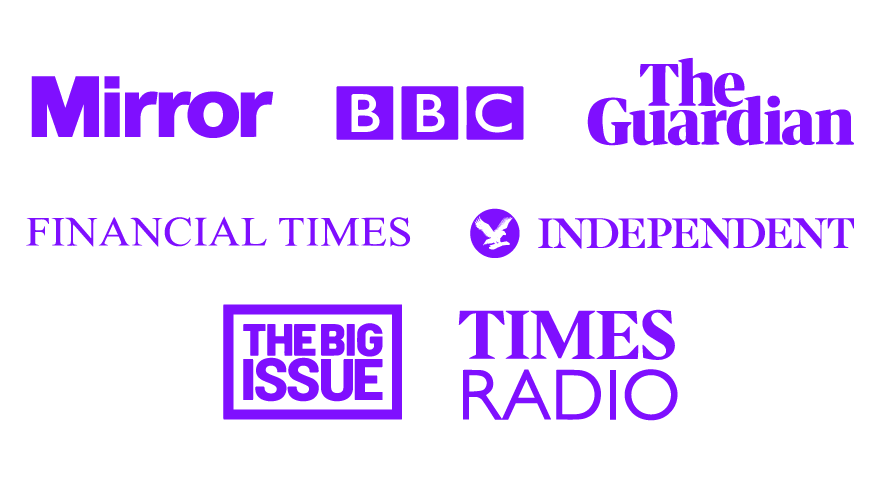On the eve of Lockdown 2.0 (in England), we held our second ‘Big Ideas’ discussion group on Zoom as part of the Covid Realities project. In the big ideas groups, parents and carers living on a low income (virtually) come together with the other members of the research team to discuss key issues that are impacting upon the daily lives of parents and carers during the pandemic, and importantly, to think through, together, what policy changes are needed and why. At our most recent meeting, there was a focus on how people’s lives have been negatively impacted by COVID-19, and how the social security system is not always or even often providing effective security for those who need it.
This blog is written by Caroline, one of the parents and carers from COVID Realities and Kayleigh and Ruth, two of the project team. This is Caroline’s experiences of social security:
“I am a single mom with 1 child, I work as a self-employed registered childminder in Northern Ireland where we are heavily regulated with small ratios which restricts our potential to earn a living.
Recently, I was moved onto Universal Credit, and the £20 covid support uplift that is added on every week has brought me up to similar to what I was receiving on Working Tax Credits. so to be told this may be removed in the coming months leaving me almost £100 a month worse off is concerning to say the least. I do not know how I will survive when this is reduced, as it is covering the extra rent I have to pay. I’m constantly worrying about money and how I’m going to meet my weekly bills, always checking my bank and putting other stuff off. When my child asks for something I have to say no because x has to be paid first and I don’t know what I have left at the end of the week. There is always unexpected bills and things to pay and when you don’t have savings its always there in the back of my mind.
Universal Credit also has a Minimum Income floor which assumes I earn the minimum wage. So I was apprehensive to see that this was being introduced back into the system because I could potentially be worse off by up to £3,000 a year if I remained self-employed. I was thinking about changing my job, but there is no work so many are being made redundant, and I would have to work 40 hours on top of travelling, as a single parent it can be very difficult on my child also. The stress and worry had an impact on me I’m tired and wary, I can be moody and argue with my child more. Making ends meet is stressful enough without the added pressure of looking to a bleak future where I could potentially lose the roof over my head and have to rely on my mother for support. Covid has meant families are not seeking childcare at the moment and filling spaces is difficult, so it was a relief to see this will now not be reinstated until April 2021. Hopefully by then, we can highlight the difficulties the minimum income floor puts on so many self-employed families, particularly women and children.
Navigating the benefit system can feel scary; inducing worries, fears and an endemic sense of in-security. Critically, at the big ideas group we heard from lots of people, like Caroline, who spoke of the uncertainty around whether the £20 uplift to Universal Credit will stay (or go); of a lack of clarity about what conditionality is currently operating; and of a wider context in which there is simply not enough money to meet the additional costs that living through COVID has created for families on a low income. . We should all be able to on a decent living wage and provide for our children without judgement or reliance on benefits. And those who cannot work should have the right to decent support The system is not a one size fits all - we all have different needs and circumstances and the system should be able to recognise that and adapt.
We are seeing far too many stories and reports of children going hungry and mothers going without meals to give their children food on their plate. Caroline has been there and done without staples such as potatoes or the meat to ensure her child has been fed throughout Covid, and hasn’t had to go without with her moving onto UC. In such a wealthy country this is not acceptable and some of the comments made from our politicians are appalling, and make many families feel even more ashamed or embarrassed to ask for help. No one should be made feel they are not a valuable part of society.
What the experiences of Caroline and others we’re working with across the project have shown so far is that the stigma and humiliation linked to the social security system before Covid-19 is continuing in the ‘new normal’ of the pandemic. Whilst the suspension of the UC minimum income floor till April 2021 is welcome, as a group we believe that families with additional dependents need extra help in a time of national crisis. We recommend dedicated measures to address their needs, including lifting the Benefit Cap, an enhanced ‘family bonus’ or additional targeted payments through Child Benefit. We also need more certainty about what families can expect on benefits in the coming months and years. Last minute policy changes and the continued silence on the extension to the £20 uplift are really unhelpful here.
Overall, we believe that future social security measures need to be developed in partnership with people with lived experience, to ensure that policies adequately respond to the needs of those who are on the lowest incomes. Through the ‘Big Ideas’ group, we will continue to work together to try to influence future policy and practice, emphasising the importance of listening to and engaging with the expertise that comes from – and can only come from – lived experience of life on a low income during the pandemic.




